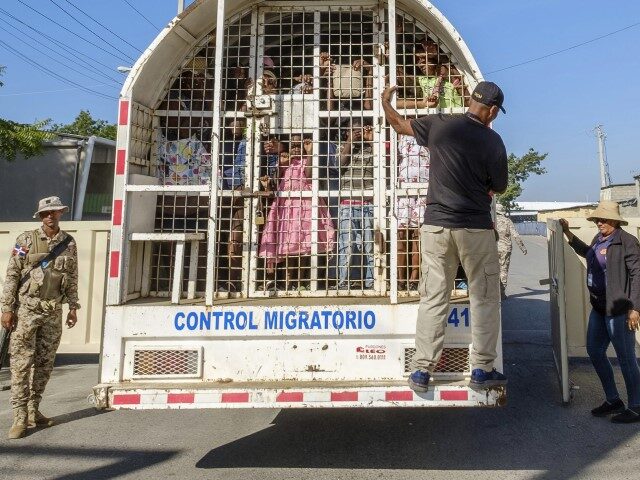Dominican Republic Increases Deportations as Haiti Crisis Worsens
 Ricardo Hernandez/AP
Ricardo Hernandez/AP
The Dominican Republic said on Wednesday that it will implement an “immediate” program to deport as many as 10,000 migrants per week.
The announcement did not say these deportations would specifically target Haitians, but the vast majority of migrants to the Dominican Republic are from its deeply troubled next-door neighbor, and the Republic has been steadily intensifying border enforcement as Haiti disintegrates.
The Dominican Republic is already deporting some 200,000 Haitians per year. Wednesday’s announcement would more than double that pace, despite pleas from the United Nations that Haitians should not be returned to their conflict-torn country.
Homero Figueroa, a spokesman for Dominican President Luis Abinader, called out the United Nations in his announcement on Wednesday. He said the increased pace of deportations was necessary, in part, because the U.N. has achieved only “limited” results in helping the Haitian police defeat violent gangs.
“Faced with this reality, we’re forced to act decisively,” he said.
Figueroa said his government has monitored an “excess” of Haitian migrants entering the country across the heavily-fortified border. He said more human inspectors and surveillance drones will be dispatched to tighten border security, while “temporary repatriation camps” would be constructed for the deportees.
Figueroa said the accelerated deportations would be conducted in accordance with “strict protocols that ensure respect for human rights.”
The Dominican Republic has a border fence topped with razor wire, plus constant surveillance of major border crossing areas. The Dominicans sometimes close the border entirely and deploy police escorts for limited numbers of temporary Haitian visitors.
Abinader has pledged to increase border patrols and build an even more formidable wall. At the U.N. General Assembly in New York last week, he threatened to take “drastic measures” if the U.N. mission to Haiti cannot restore order there. To date, that mission consists of only 400 police from Kenya, plus a tiny handful of police and soldiers from Jamaica and Belize.
“We warned at the United Nations that either it and all the countries that had committed themselves act responsibly in Haiti, or we will,” Abinader said on Thursday.
Haiti’s transitional government, empowered after the resignation of unelected president Ariel Henry in April, suffered a setback on Thursday when anti-corruption investigators requested criminal charges against three members of the presidential body.
Haiti’s Anti-Corruption Unit said a former bank director accused the three presidential officials of shaking him down for over $750,000 in bribes in order to retain his lucrative position at a state-owned bank.
The Anti-Corruption Unit also accused the banker in question of violating Haitian law and bank policies to issue $20,000 credit cards to each of the three presidential officials accused of corruption, plus a $12,500 card for a collaborator in their scheme. Investigators suggested these cards, which have been used “irresponsibly,” were the banker’s alternative payoff to the enormous bribe that was originally demanded.
Source link

